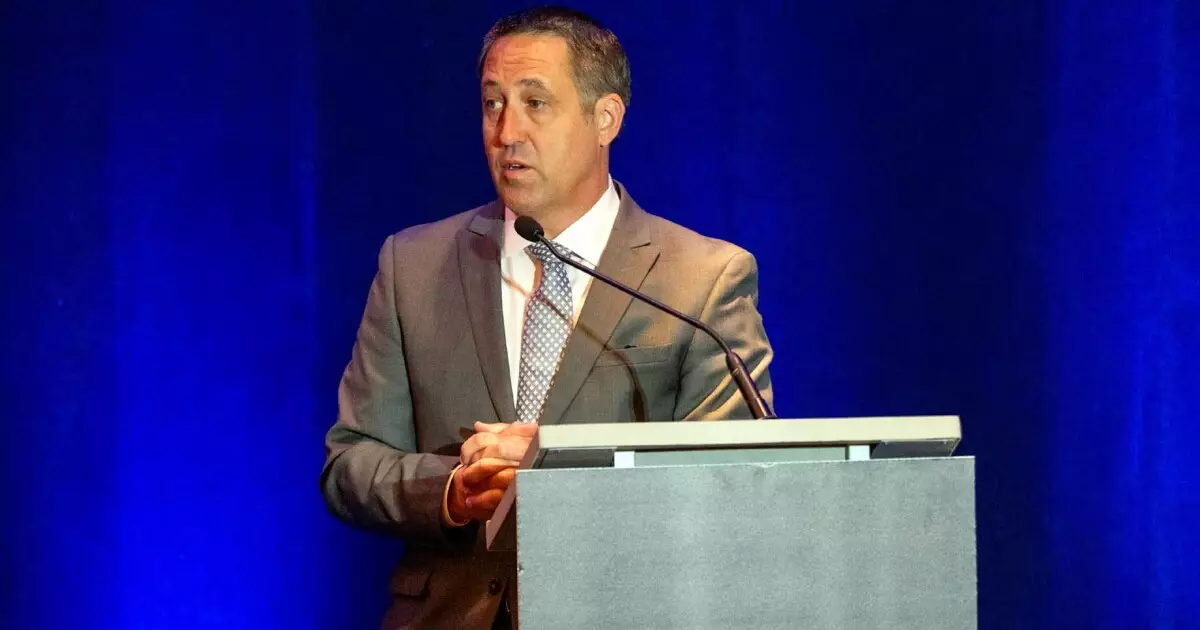In a significant political shift, BlackRock Inc. has been removed from Texas’ blacklist that barred companies from engaging with fossil fuels. This decision marks the culmination of a three-year saga that underscores a broader clash between environmental advocacy and economic pragmatism. The implications of this development extend far beyond the mere stock performance of a single firm; they touch on the heart of Texas’ identity as a bastion of energy innovation and freedom. The state-managed funds, now free to invest in BlackRock, represent over $300 billion in assets—a staggering sum that could irrevocably influence energy markets and policies.
The Economic Reality
The removal of BlackRock from Texas’ blacklist is not merely a political maneuver; it reflects a necessary alignment with economic realities. In these times of economic uncertainty, reliance on cleaner and greener policies without consideration of their financial implications can be reckless. Texas, known for its robust energy sector, especially fossil fuels, has made a pragmatic choice to partner with a firm that supports its economic backbone. The stock market does not operate on ideological whims, and the decision to allow investments in BlackRock can be seen as a rational acknowledgment of the energy industry’s critical role in maintaining jobs and economic stability.
Environmental Pledges vs. Investment Practicality
Criticism aimed at BlackRock for its previous environmental commitments appears to have pushed the firm to recalibrate its strategy. By stepping back from platforms like the Net Zero Asset Managers initiative, BlackRock is signaling a return to investment practicality over ideological adherence. This recalibration is not an indictment of environmental stewardship but rather a recognition that pie-in-the-sky goals without achievable pathways can put investors at risk. The transition entails walking a fine line: companies need to invest in sustainable practices, yet they should not sacrifice profitability, especially when the global economy is fragile.
Political Networks and Influence
The dynamics between BlackRock and Texas political leaders, epitomized by CEO Larry Fink’s public appearances alongside influential Texas figures, cannot be overlooked. This aligns BlackRock with a political landscape that values energy independence and economic empowerment over blanket green policies. The firm’s recent actions, including sponsorships of Texas-centric events, emphasize its commitment to understanding and integrating into the local business environment. This strategy showcases a keen awareness not merely of market forces but of the necessity of partnership with local governments to facilitate business growth.
A Broader Implication for Investors
This situation illuminates a critical point for investors and asset managers struggling to navigate the sea of political correctness in finance. The outreach by BlackRock to engage with Texas leadership serves as a template for how investors might align their portfolios with not only ethical considerations but economic realities. Engaging in a dialogue around energy production and consumption will be vital for firms that wish to thrive.
Ultimately, Texas’ decision to allow BlackRock back into the fold sends a resounding message: the economic engine of fossil fuels is not only relevant but essential for a balanced approach to environmental responsibility and economic growth. BlackRock’s journey reflects broader societal shifts; it’s not just about green policies anymore—it’s about sensible investments.


Leave a Reply